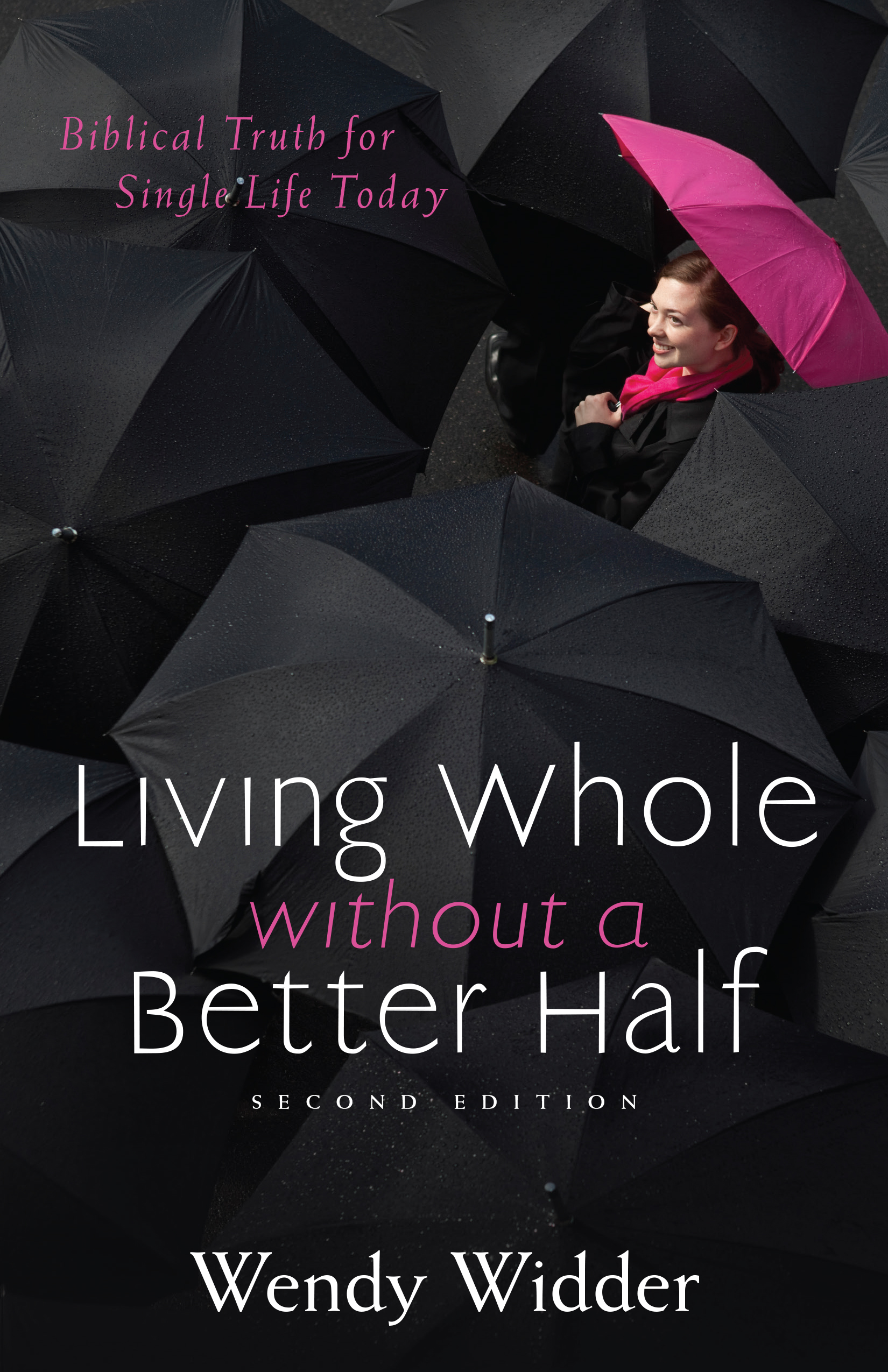It’s not available until sometime next spring, but a new edition of Living Whole is in the works and can be pre-ordered now.
Here is the preface to the new edition:
Writing this book changed my life. I suppose some people who have been changed by writing a book write their next book from a new beachfront property – purchased with the royalties of their breakout bestseller. That didn’t happen to me – although, gratefully, Living Whole has sold copy after copy over the long haul, which is why my publisher and I think it merits another round of life. Others have written books that put them in contact with people who changed their lives. When Living Whole came out in 2000, at least one well-meaning acquaintance said that was going to happen to me: “Now that you’ve written a book on singleness, you’ll get married.” While I secretly hoped he was right, he wasn’t.
When I started writing Living Whole, I was a late twenty-something single with a broken heart. At the prompting of a wise friend, I used Bible study and writing to work my way through the pain and confusion of a dismantled future. Over the months of writing, I actually began to notice that the sun still came up every day. And then it slowly dawned on me how much delight I took in studying the Bible and writing about it in an engaging way.
Not long after this, I had a terrifying realization. If my book found its way past piles of rejected manuscripts to publication, and real people read what I had pecked out in the solitude of my apartment, they would believe me. At least, most of them. I have read my share of books by “experts” – pastors, teachers, and others with certain experiences – and I usually assume the authors know what they are talking about, too, unless they give me good reason to think otherwise. If I didn’t think so, I wouldn’t buy the book. And yet here I was – an elementary school teacher – telling Big People what the Bible means and why it matters. The awesomeness of this responsibility humbled me.
About the same time, I had a trio of male college friends who were all headed to seminary. One summer day as I walked my regular route through a nearby neighborhood, I was praying for my friends and the decisions they were making about the future. Before I finished, I had another epiphany: I want to go to seminary!
And so began an educational journey that I planned to last two or three years. After a year of correspondence courses (on cassette tapes, if you can even remember those), I packed up my little life in a 15-passenger cargo van and moved around the lake (Michigan) to be a full-time residential student. Thankfully, I didn’t know then that I had effectively launched a “career” that would last more than twelve years. Seminary turned out to be much more than I had bargained for. I couldn’t stop. For the next decade of tax seasons, the employment status on my 1040 read “student.” I completed a Master of Divinity at seminary, and then moved back around the lake to do a Master of Arts and a PhD closer to the home I had left four years earlier.
All because I wrote this book.
An uncharitable reviewer of the first edition said, “The author apparently considers herself an expert on being single due to a recent break-up with a fiancé in her mid twenties. Unfortunately, her experience is not particularly relevant to people who have been single for many years or are single in their 30’s or 40’s, which is significantly different from being a single 20-something.” You already know what I think about the “expert” business, and a careful reading of the book reveals no fiancé. But I have chewed on the second part of the review at times over the years. Now that I am single in my 40s (and was in my 30s, too), I can better assess the reviewer’s perspective. I do agree that singleness at these stages is a lot different from 20-something singleness. And I am fully aware that I could not write this same book today – in part because of the education I’ve received formally in school and informally in life. My approach and style have changed.
However. As I read through the book again to make revisions and to create discussion questions, I found many of the chapters to be helpful reminders to me of lessons once learned and then relearned and then learned again and, amazingly, still needing to be learned in the present. Perhaps I’m just a really slow learner.
If you are “young” (really, it’s all relative…) and single, I hope these examples of faith can help you set the right course for as long as you are unmarried. If you know the course well, maybe you’ve already learned these lessons – or maybe not. For you, I hope the men and women of Hebrews 11 can offer fresh encouragement to you to run well.
Always needing to remember whose I am,
Wendy Widder
July 2013



Recent Comments